Far From Home: Migrant workers in Malaysia make their mark by giving back to society, helping fellow countrymen
KUALA LUMPUR: On a hot and humid recent Sunday evening at Kuala Lumpur's Central Market, hundreds of people weave through crowded stalls selling an array of goods such as clothes, souvenirs, food and drinks.
Teeming with tour buses, the area buzzed as visitors searched for authentic Malaysian handicrafts and artworks to bring home. The back-and-forth of prices of goods echoed through the halls of the historic market - located right in the heart of Malaysia’s capital - as buyers bargained with shopkeepers.
Yet a stark contrast to the vibrant scene could be seen just on the fringe of the market's shadowed alleyways, where homeless people slept on cardboards or sat listlessly on benches watching those passing through the area.
Amid this contrast, a beacon of compassion emerges as a group of volunteers distribute warm meals, bottles of water, fruits, and soap among other things to the homeless.
One of these volunteers was Criseldo Animo, a domestic worker from the province of Mindanao in southern Philippines.
When distributing the essentials to the homeless, Animo who has worked in Malaysia for 12 years told CNA that she could only try and put herself in the shoes of those she was helping.
“I feel happy and blessed that I am able to make a slight difference,” Animo, who is in her 60s, said, adding that she plans to continue the volunteer work once she returns to the Philippines, where she noted that the poverty rate is worse as compared to Malaysia’s.
On this particular Sunday, the single mother of three had walked for several kilometres to help distribute food and drinks to those in need in downtown Kuala Lumpur in the blistering heat.
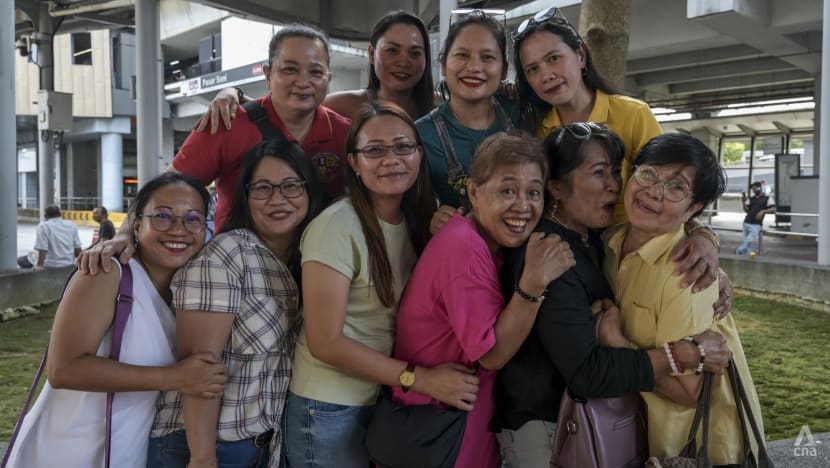
Animo is a member of FARA Philippines - a group consisting of Filipino residents and migrant workers based in Kuala Lumpur - whose main objective is to help and rescue those in distress, particularly other migrants. The organisation has chapters in different countries.
Most of its members in Malaysia - including 100 active ones - are domestic workers.
FARA Philippines is among several groups - consisting mainly of migrant workers - as well as individuals who are working quietly to help improve the lives of the local communities they are a part of.
Others, meanwhile, use social media platforms to encourage their fellow countrymen toiling away in a foreign land even as these posts offer the public a glimpse into their lives.
And despite the continued social stigma faced by some of them, many remain keen to make a positive impact in Malaysia as they eke out a living hoping for a better future when they return home.
SHARING WHAT LITTLE THEY HAVE
For most domestic workers in Malaysia, Sundays are their only day off from the rigours of work. And for Jacquelou Cabello - who like Animo is also a member of FARA Philippines - doing volunteer work was a good way to spend her day off.
Cabello was a former vegetable vendor in the Philippines and came to Malaysia in 2015 in order to support her three children aged between 13 and 21.
“I feel very much empowered and blessed that I am not in the same situation as them. It gives me more motivation to help them,” said the 39-year-old from the province of Batangas, referring to the people whom the group helps.
“We understand hardship, so we want to share what little we have (with those whom we are helping).”
The group conducts outreach programmes to help the homeless about once every few months, depending on funding availability. Each member of the group contributes from their own pocket for the activities.
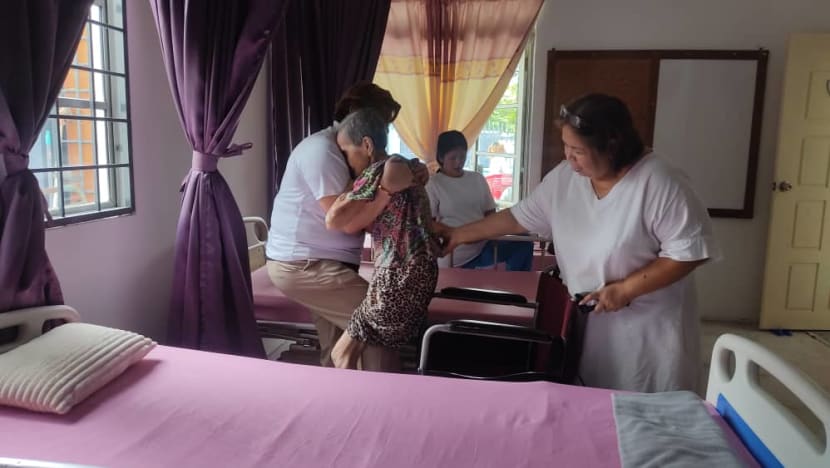
Virginia Babie De Vera Wong - who is the president of the FARA Philippines' chapter in Malaysia and based in Kuala Lumpur - told CNA that the group was formed in 2018 to provide emotional support to overseas Filipino workers separated from their families and to help them adapt to a new environment.
De Vera Wong, who is now a permanent resident of Malaysia, said that besides feeding the homeless, the group also makes visits to orphanages and nursing homes, providing vital aged caregiving training to those working in the latter.
FARA Philippines also collaborates with other non-governmental organisations to offer free medical screenings to migrants in Kuala Lumpur.
“It is good for the members to do this because this is one way they can meet their fellow countrymen while opening up their minds to the difficulties faced by others and being more resilient,” said De Vera Wong.
Another group from the Philippines that does outreach work monthly for the homeless is the Reformed Guardian Legion - a community group whose members include domestic workers in Kuala Lumpur.
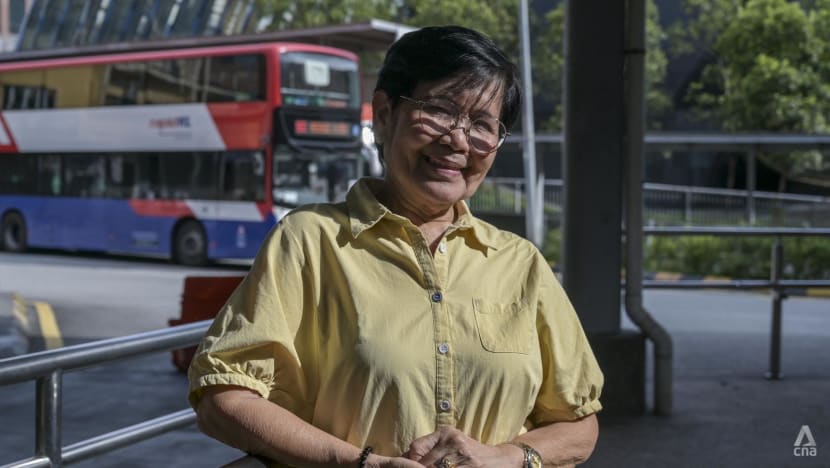
HELP FROM WITHIN
While there is a desire to contribute back to the society, there are not many migrant workers in Malaysia who organise events for the public. Many of their contributions are more focused on supporting their own countrymen.
Some migrants told CNA that they prefer to keep to their own communities rather than engage with the locals because of the negative perceptions held against them that create an unwelcoming atmosphere.
Speaking on a condition of anonymity, one Bangladeshi activist who wanted to be known as Ibrahim expressed a desire for deeper engagement with local communities in Malaysia. But he stressed that their primary concern is the pressing needs of their own members.
"We have so many Bangladeshis struggling and needing immediate help," he said.
Ibrahim added that because of social stigma of foreign workers, it was almost impossible to participate in shared activities with the locals.
“Some people view us as troublemakers, so the best thing is to sometimes keep to ourselves hidden from the public view,” he said.
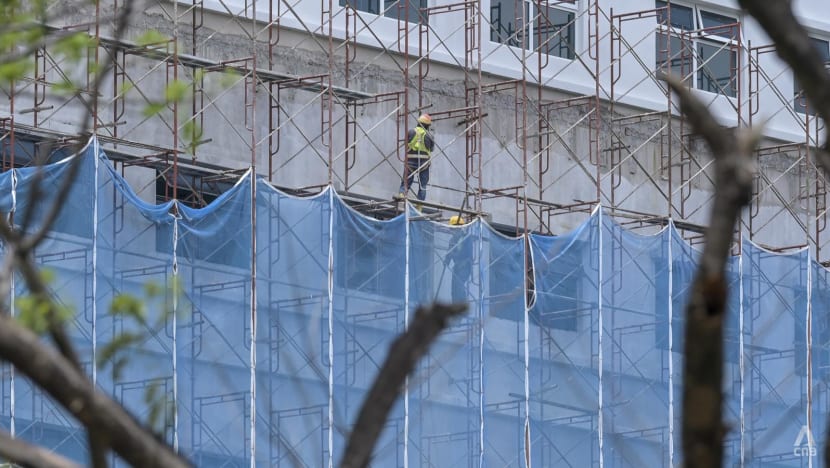
According to the Malaysian Department of Statistics, there were around 2.2 million documented migrant workers in Malaysia as of 2022, or about 15 per cent of the total labour force.
The reported figures exclude an estimated 1.2 to 3.5 million undocumented migrant workers, according to the World Bank.
Malaysia's foreign workforce is predominantly Bangladeshi (898,970), followed by Indonesians (582,108) and Nepalis (370,127), according to the Human Resources Minister Steven Sim.
These migrants form a substantial workforce in Malaysia, especially in the so-called “3D” – dirty, dangerous and demeaning – jobs that are usually shunned by locals.
The sectors allowed to hire foreign workers include manufacturing, plantation, agriculture, services, construction, domestic work, as well as mining and quarrying.
Ibrahim said that many from his migrant workers’ community are not educated and there is still a long way to go for them to achieve their rights, and they are therefore prone to abuses.
“Quite a number of them still don’t know their rights and it is easy to take advantage of them, especially the newer workers who don’t know their way around,” said Ibrahim, who used to study at a university in Malaysia before getting into activism to help out his fellow countrymen.
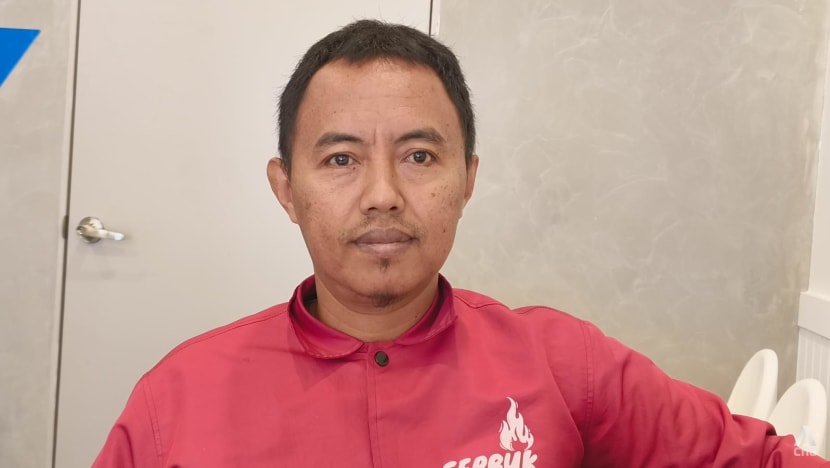
For Indonesian migrant workers in Malaysia - a group called Serantau provides a key community connection and support network.
One of Serantau’s founding members, Suherman, told CNA that the group focuses on providing information and advocacy for Indonesian migrant workers.
They conduct “train the trainer” classes, with a lot of focus currently on plantation workers.
Suherman, 39, who is from West Java and like most Indonesians go by one name, said that one big issue facing plantation workers is that of bonded labour and unpaid wages.
“There are still cases of rights abuses and we are doing our best to prevent this from happening in the first place. There is still a long way to go in many aspects related to workers’ rights,” said the father of three who works at a petrol station in Kuala Lumpur.
He said that the training sessions, held every few months, enabled participants to become advocates, extending rights awareness to their fellow workers.
The group has about 100 active members who gather support and crowdfund when Indonesian nationals find themselves in difficulty and needing urgent help. This varies from helping those who are sick, those whose wages have been withheld, or those who face repatriation.
“We work with the Indonesian embassy closely. They can’t keep track of every single Indonesian citizen and we do our best to be their eyes and ears on the ground,” he said.
Initially the group functioned as a casual weekly meeting for Indonesian nationals.
But that changed, however, when rising cases of human trafficking and people smuggling among their community spurred the group to become advocates for their rights.
Meanwhile, Suherman said that during the COVID-19 pandemic, the group distributed food aid to other migrant communities besides Indonesians that needed help because many did not have income.
“While we primarily serve the Indonesian community, during the pandemic we also helped out the Bangladeshi and Myanmar people who needed aid for humanitarian reasons,” he said.
Suherman observed a significant increase in self-organising migrant worker groups in recent years, attributing it to a heightened awareness of their rights regarding fair wages and safe working conditions.
He added that smartphones and social media have facilitated this organisation through faster communication and coordination.
“Our strength lies in numbers and for us it is important that we stick up for one another,” he said.
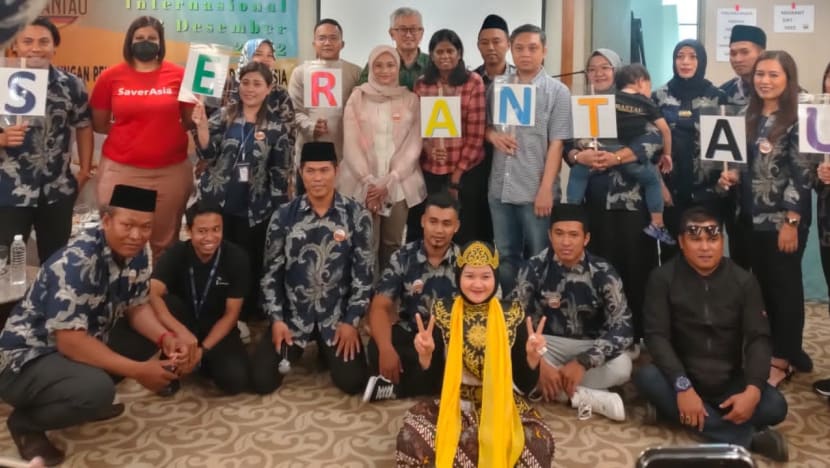
Meanwhile, activist Adrian Pereira of the North South Initiative - a Malaysian-based organisation that empowers migrants - said it was natural for people to form groups based on shared cultural, ethnic, and linguistic backgrounds.
He also notices that more of these groups - both formal and informal - often evolved to focus on protecting their members' rights.
“This evolution is fueled by increased rights awareness,” he said, adding that adversity and challenges - such as those faced during the COVID-19 pandemic and encouragement from trade unions - have driven the formation of more such groups.
“Some groups arise organically, while others are inspired by rights-based advocacy. As rights awareness grows, so does support and solidarity, leading to the formation of even more groups that protect their own rights.”
Meanwhile, activist Adrian Pereira of the North South Initiative - a Malaysian-based organisation that empowers migrants - said it was natural for people to form groups based on shared cultural, ethnic, and linguistic backgrounds.
He also notices that more of these groups - both formal and informal - often evolved to focus on protecting their members' rights.
“This evolution is fueled by increased rights awareness,” he said, adding that adversity and challenges - such as those faced during the COVID-19 pandemic and encouragement from trade unions - have driven the formation of more such groups.
“Some groups arise organically, while others are inspired by rights-based advocacy. As rights awareness grows, so does support and solidarity, leading to the formation of even more groups that protect their own rights.”
MIGRANTS IN SINGAPORE MAKE A MARK THROUGH VOLUNTEERISM, SPORTS
In Singapore, Indah Yosevina and Raman Saravanan are among many migrant workers who find joy in spending their days off amid their busy schedules to organise or participate in community programmes.
Indah, a domestic worker from Indonesia who has worked in Singapore for over six years, spends her free time organising various initiatives aimed at supporting not only the migrant community but also contributing to the wider Singapore community.
As the chairperson of the Indonesian Family Network (IFN) - an organisation made up of fellow Indonesian domestic workers - the 41-year-old has organised various exercise and educational classes to empower fellow domestic workers from Indonesia.
Beyond that, Indah - together with IFN - has also spearheaded blood donation drives and volunteer efforts to provide food for those in need in Singapore.
The network’s blood donation drive, held every three months since 2016, attracts around 40 participants of mostly Indonesian domestic workers each time, according to Indah.
“We manage it ourselves, we write a letter to the blood bank, make an appointment to pick a date and gather people,” she told CNA, adding that the initiative is open to migrant workers of other nationalities as well.
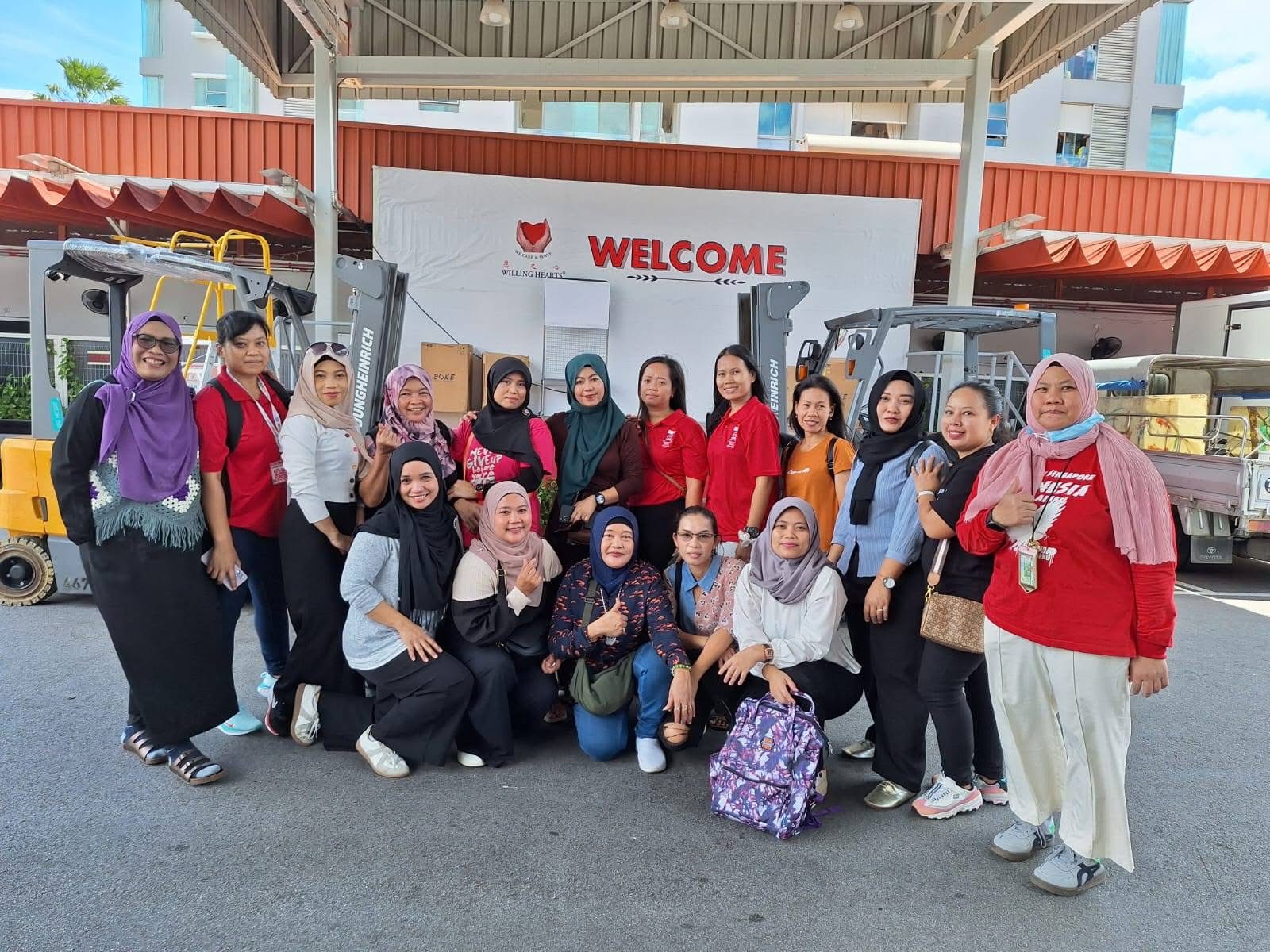
Indah has also organised volunteering initiatives for migrant workers at Singapore-based charity kitchen Willing Hearts which provides meals to the needy, including the elderly, disabled and low-income families.
The activity is held once a month on a Sunday and those interested sign up for the programme through IFN’s social media platforms.
Indah first joined IFN in 2021 to participate in its choir group and was elected as the chairperson of the network in January 2025.
Her passion for volunteering has grown since joining the network but even before that, she was also an active member of the Migrant Writers of Singapore and “The Story Behind Smile” initiative - both of which focus on shedding light on the lives of migrant workers in the country.
“For me personally, I like doing volunteering work, I like to do positive things on my off days,” she said when asked how she juggles her daily work with her community efforts.
Besides volunteering work, migrant workers in Singapore have also made a mark through the sports that they love.
On Feb 23, a team of migrant workers led by 43-year-old Raman Saravanan finished second at the annual Century Race organised by the Singapore Dragon Boat Association.
The team consisted of drivers, safety coordinators and general workers at construction sites, according to Saravanan.
“My role was to organise the team, while my friends took care of booking the coach, arranging training sessions and securing the necessary equipment.” Saravanan, who has worked in Singapore for over 20 years, told CNA.
Despite his busy schedule as a safety coordinator at a construction site, Saravanan was determined to ensure that his team - which trains once a week - would be well-prepared for the race. He even secured a sponsorship from local charity organisation ItsRainingRaincoats to support them.
“Some of my teammates had night shifts, making it difficult for them to attend training during the day and others worked on Sundays but we made the most of the time we had together,” Saravanan - who hails from India - told CNA.
Saravanan was also moved by how the journey had fostered the spirit of togetherness among his migrant friends.
“Some of my friends who work at construction sites brought food to share, along with flags and whistles to cheer us on and motivate us to paddle faster.”
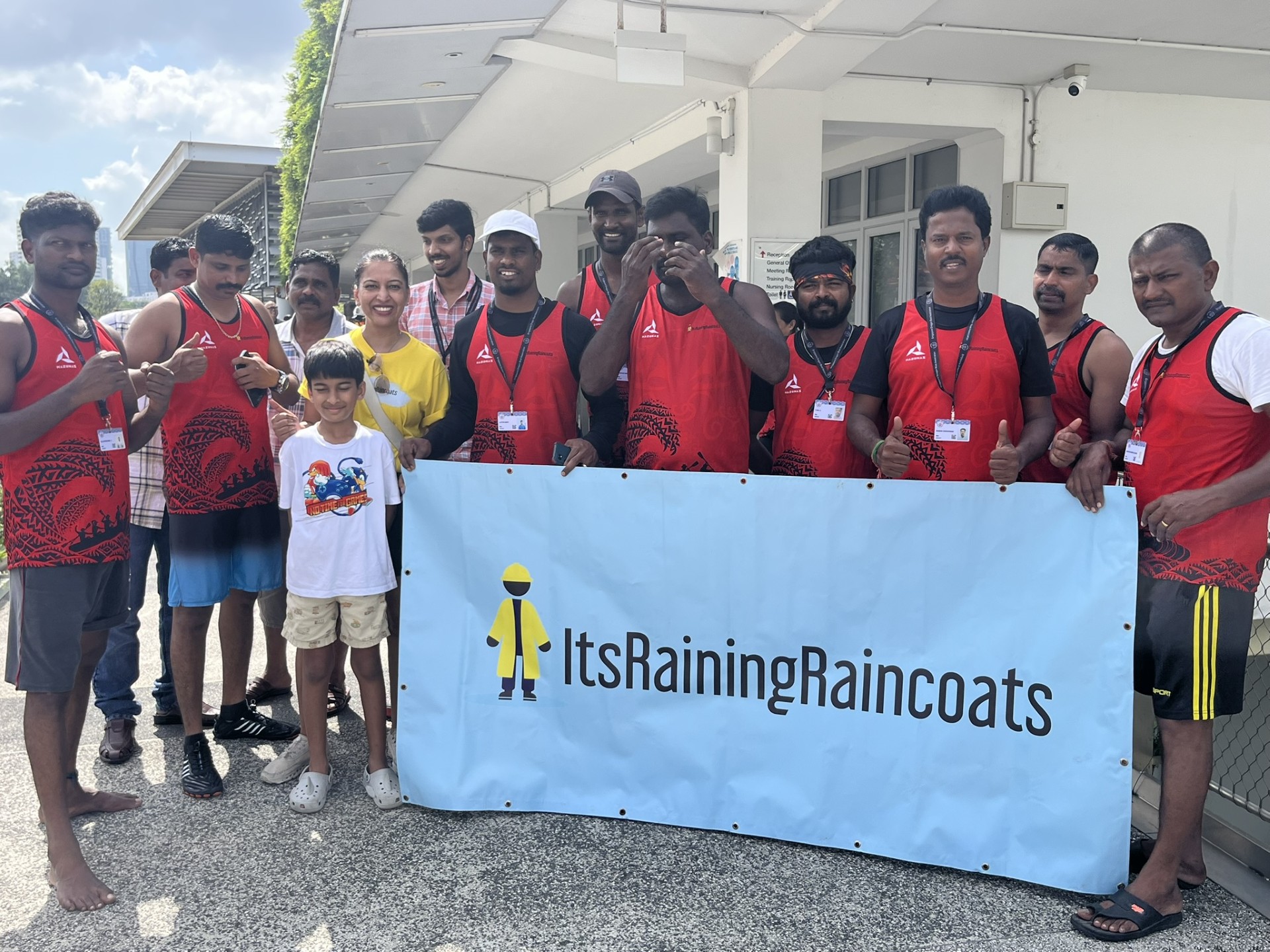
TAKING MATTERS INTO THEIR OWN HANDS
For some of these migrants, they draw on their own experiences having moved abroad to a foreign land on their own to kickstart initiatives that seek to help out their respective communities.
Nasrikah Paidin founded the Indonesian Migrant Domestic Workers Association (PERTIMIG) back in 2019, drawing from her own experience where she earned a paltry RM350 (US$78.40) a month back in the late 1990s and did not have a day off.
“My Filipino colleague working in the same household was earning RM600 monthly and had a day off. I even had to work during Hari Raya,” said Nasrikah, who is from East Java.
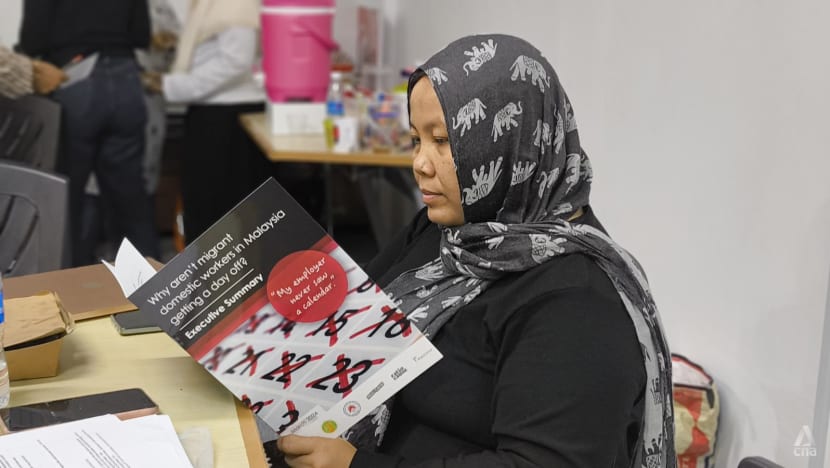
Nasrikah, who is married to a Malaysian and now does work on a part-time basis, felt that she had to use her own experience to empower those who came after her.
“I experienced discrimination and felt that by speaking about it, I was advocating my own issues,” said Nasrikah, who still considers herself a domestic worker.
She added that while conditions have appeared to improve since then, there was still a long way to go to achieve decent work conditions for domestic workers.
“Domestic workers contribute a lot … and it is an essential sector of the economy,” said Nasrikah, who continues to advocate for a mandatory day off for all domestic workers - a right not universally granted by employers.
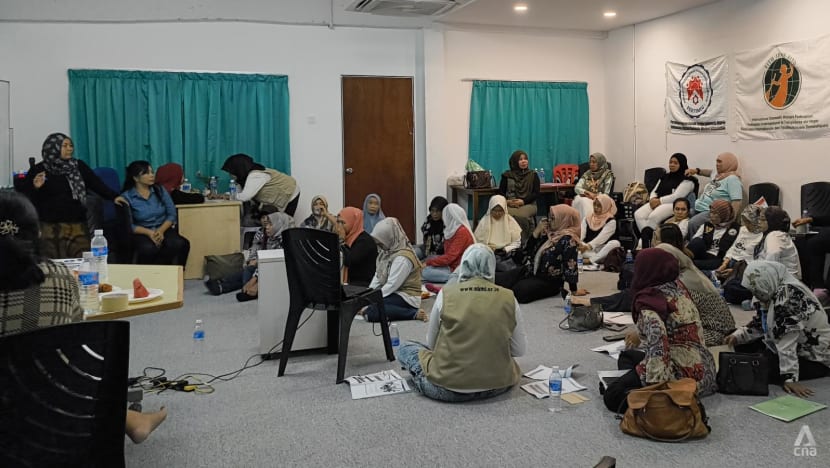
She has also worked towards getting protection from Malaysia’s Social Security Organisation (SOCSO) for domestic workers.
Since 2021, it has been mandatory for employers who hire local or foreign domestic workers to register and contribute for their workers to ensure social protection for their workers against work-related mishaps.
Nasrikah also conducts various classes in Kuala Lumpur on most Sundays for domestic workers, ranging from English, Mathematics, to financial literacy and workers’ rights.
“I wish I had this kind of education when I came here initially. My aim now is to help the workers achieve their migration goals and integration so they can be with their families back home instead of being a domestic worker here forever,” she said.
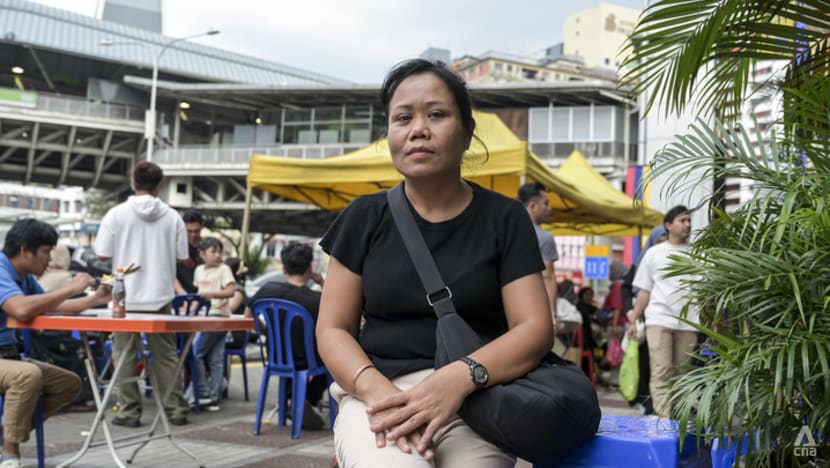
Meanwhile, another individual who helps her fellow countrywomen on her own volition is 45-year-old domestic worker Romlah, who goes by one name.
The Sumatra native acknowledged that she has a good boss who allows her to go out anytime and anywhere provided her work at home is completed but said that many others are facing difficulties with their employers.
Her most recent case involved an elderly Indonesian caregiver from Medan abandoned by her employer after the death of the person she was caring for.
Romlah had bumped into the woman at a bus stop in Klang and had enquired about her. She then helped the abandoned domestic worker to find a temporary shelter with the support of the Indonesian embassy.
“I have no issues on my own but when I see and hear of cases of domestic workers being abused, I feel pain inside. I feel that I have to do something,” said Romlah, who calls herself a part-time activist.
A VIRTUAL COMMUNITY SPACE
For some migrant workers, making a name in the online space provides an avenue for them to connect with their fellow countrymen. Through social media platforms such as TikTok, some Bangladeshi workers are building a strong online community, documenting their daily lives in Malaysia.
While not traditional forms of expression, these videos give an insight into their migration to Malaysia.
M.D Masud, 36, is a Bangladeshi migrant worker who has gained online fame in Malaysia for his videos on TikTok. He has more than 200,000 followers on the social media platform.
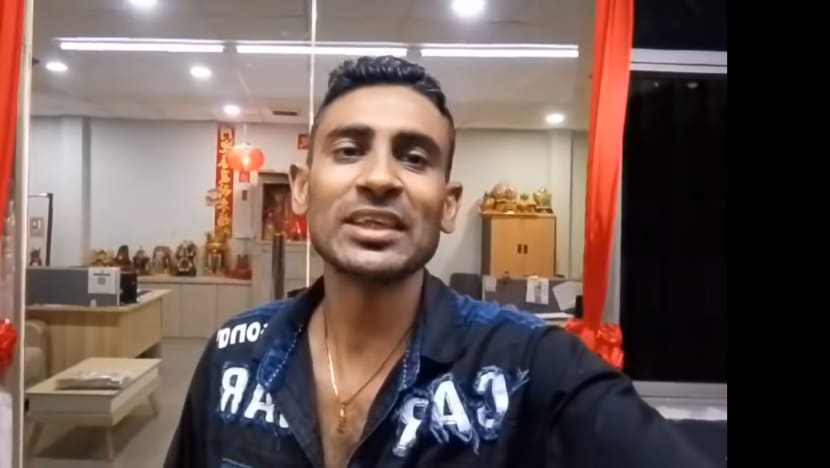
He entertains his audience with humorous songs, blending Malay lyrics with catchy Bollywood melodies. One video from November 2023 skyrocketed to 11 million views, while two others garnered seven million and three million views each, showcasing his widespread appeal.
In his videos, he urges fellow Bangladeshis to focus on work opportunities in Malaysia and saving money, rather than be blinded by romantic pursuits.
His videos are in both Malay and Bengali, with the former getting engagement from Malaysians as well.
Masud - who is from the capital city of Dhaka - told CNA that his videos are for fun and that he has had mainly positive feedback from people, including Malaysians.
Masud, who works as a supervisor in a furniture factory in Batu Pahat, Johor, said that some Malaysians even recognised him and have requested to take pictures with him.
“This is just a hobby and for fun. I can only hope that this can make Malaysians open their hearts and accept the presence of Bangladeshis and other migrant workers in the country,” Masud said in a phone interview.
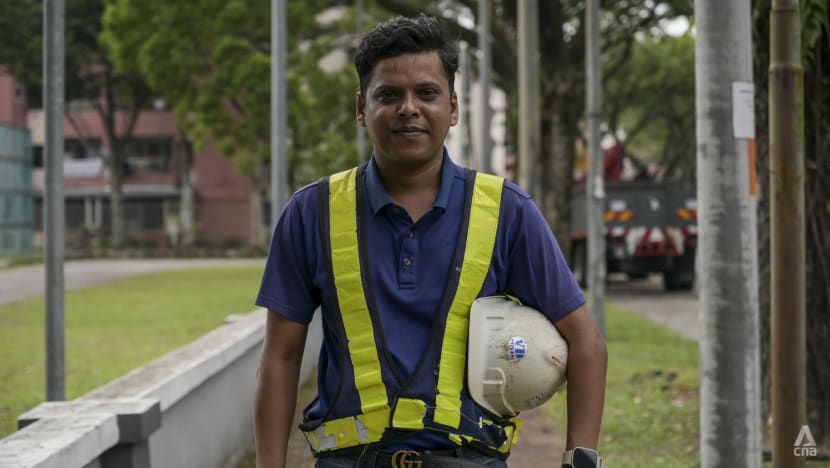
Meanwhile, Jalil Ahmed uses his TikTok account to advise his fellow Bangladeshis in the Bengali language on how to conduct themselves in Malaysia. He boasts some 14,000 followers on the app.
The 30-year-old, who is now a supervisor in a construction company, has been in Malaysia since 2013. A video of him being interviewed by an online channel went viral earlier this year, with the video garnering more than 750,000 views.
The video on the MalaysianPayGap Instagram page saw Jalil speaking about his time in Malaysia and how he managed to climb up the ranks at his company, with many commending him for his hard work.
Jalil, who now earns a monthly salary of RM5,000, told CNA that he was able to command such a salary as he gained more skills and experience over the 12 years that he has been in the country. He started out earning RM900 monthly.
“I tell my fellow citizens that they also need to respect the country they are in. They have to be disciplined and can’t throw rubbish anywhere (for example),” said Jalil - who hails from Bangladesh’s Noakhali district - and was last year invited to speak at a seminar organised by the International Organisation for Migration.
He also reminds his countrymen to try and integrate with Malaysians, by purchasing from local citizens for example instead of just purchasing from shops operated by his countrymen.
“Malaysia has given me and my family back (home) a better life. My aged parents can have a relaxed life. So, we must also try to give back in some way to the local economy.”
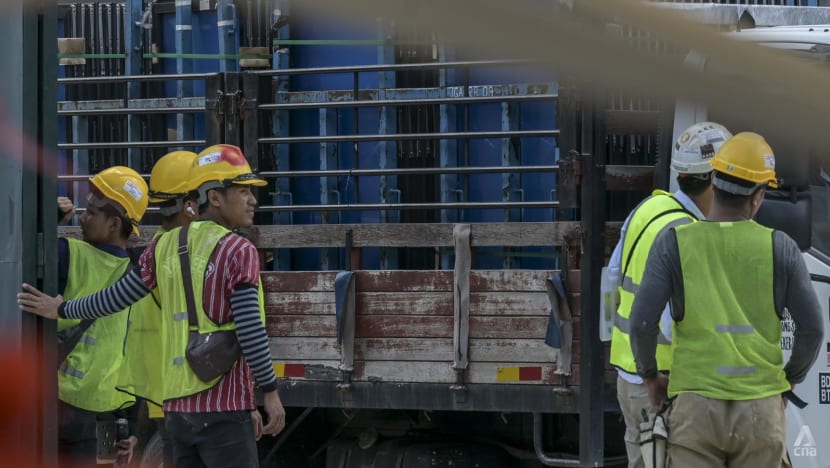
INTEGRATION AND UNDERSTANDING NEEDED: ACTIVIST
While attitudes are changing, migrant workers in Malaysia still face significant prejudice and experience systemic discrimination despite their contributions.
A 2019 report by the International Labour Organisation found that Malaysians still have negative perceptions of migrant workers and low support for their rights.
Among other things, the survey found that almost half of respondents believed migrant workers were a drain on the economy and that 83 per cent of respondents thought that crime rates have increased due to migration.
Activist Pereira of the North South Initiative told CNA that many of these attitudes still persist to this day, with many Malaysians looking at these workers as threats that occupied and interfered in their social space.
Pereira urged that efforts be made by policymakers and politicians to ensure migrants are not viewed as hostile entities who are unfairly taking jobs and diminishing the economic opportunities available to citizens.
He added that there are certain sectors or industries where Malaysians are not interested to work in and “we have no choice but to rely on migrant labour”, whose contributions he stressed are “immense”.
“Just imagine if migrants don’t do our agriculture work, we will have a very severe food security crisis. The younger generations are not interested in continuing the legacy of farming and agriculture.
“If migrants don’t do our construction work, the cost of building will go up. There is a lot of talk about bringing data centres. Who’s going to build that? If you don’t rely on the labour of migrants, costs will escalate,” he said.
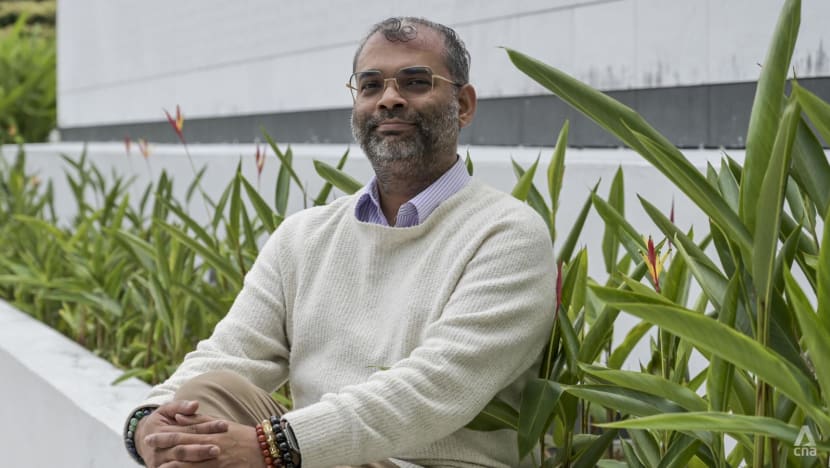
Pereira believes that more integration programmes and modules must be conducted - either by companies who bring in foreign workers or by local councils - especially in areas where they are housed.
He pointed to the example of Singapore which has various programmes and initiatives aimed at integrating migrants and locals.
“That interaction and integration together with Malaysians has to happen more often in a systematic manner. Hopefully both migrants and Malaysians will learn to appreciate each other better and respect each other’s culture,” said Pereira.
Meanwhile, Suherman of Serantau hopes that Malaysians would not generalise all migrants as those who entered the country illegally and give them due recognition for their contributions.
“Look at the nice condominiums and roads you have. It is from the blood and sweat of migrants,” he said.
Agreeing, Jalil - the Bangladeshi activist - said that he hopes that Malaysians would look at migrants with respect and as those who have done their part for the development of the country.
“Please don’t look at us as animals but as humans,” he said.
Disclaimer: Investing carries risk. This is not financial advice. The above content should not be regarded as an offer, recommendation, or solicitation on acquiring or disposing of any financial products, any associated discussions, comments, or posts by author or other users should not be considered as such either. It is solely for general information purpose only, which does not consider your own investment objectives, financial situations or needs. TTM assumes no responsibility or warranty for the accuracy and completeness of the information, investors should do their own research and may seek professional advice before investing.
Most Discussed
- 1
- 2
- 3
- 4
- 5
- 6
- 7
- 8
- 9
- 10